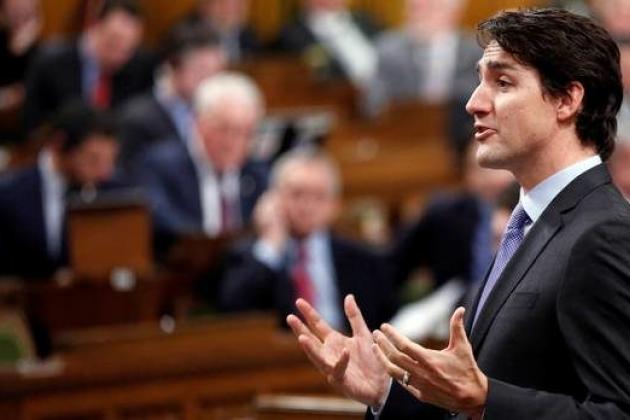
Source: Geoffrey York AND Michelle Zilio | Globe and Mail
In a sharp reorientation of Canada’s foreign-aid strategy, the Trudeau government plans to spend $650-million on sexual and reproductive health and rights worldwide – a move that could see Canada paying for a battle against anti-abortion laws in dozens of countries.
The three-year plan, announced by Prime Minister Justin Trudeau on Wednesday as he marked International Women’s Day, would finance a range of global programs, including contraception, reproductive health, legal abortion, sexuality education and advocacy work.
Abortion is illegal or severely restricted by law in an estimated 125 countries worldwide, mostly in Africa, Latin America, South Asia and the Middle East. But under the new plan, Canada could pay for advocacy groups to challenge those laws.
One of the activities that Canada will finance, according to a background document, is “removing judicial and legal barriers to the fulfilment of sexual and reproductive health and rights.”
A federal official confirmed that these barriers include the anti-abortion laws in many countries.
“Advocacy is included in our initiative, so yes, we will support local groups and international groups who advocate for women’s rights, including abortion,” International Development Minister Marie-Claude Bibeau told The Globe and Mail in an interview on Wednesday.
The campaign could be an uphill battle. In regions such as Africa, most governments are socially conservative and heavily influenced by Christian and Muslim groups that are strongly anti-abortion. Abortion is fully legal in only a small handful of countries, such as South Africa.
While helping to fight anti-abortion laws, the new federal strategy would also try to reduce the estimated 22 million unsafe abortions annually – a leading cause of death among women in the developing world, who often turn to dangerous backstreet providers because they have no access to legal abortion.
The new federal strategy would aim to “reduce the number of unsafe abortions, through education, contraception, family planning,” Ms. Bibeau said. “All of this strategy is to empower women and protect them. They put their lives at risk when they go to clandestine abortions.”
At a news conference, Mr. Trudeau was asked about the countries where abortion is illegal. He voiced his concern about the risk of death. “For far too many women and girls, unsafe abortions and lack of choices in reproductive health mean that they either are at risk and at risk of death, or else simply cannot contribute and cannot achieve their potential,” he told reporters.
The Liberal government’s plan to finance contraception and abortion programs internationally is in sharp contrast to the policy of the previous Conservative government. While the Conservatives created a multibillion-dollar foreign-aid program for maternal and child health, less than 2 per cent of its budget was allocated for contraception services and it refused to pay for any abortion-related services.
Some rights activists praised the new federal strategy. “Investing in sexual and reproductive health and rights is an investment in human rights that has the potential to prevent tens of thousands of deaths each year and millions of unwanted pregnancies,” said a statement by Sandeep Prasad, executive director of Action Canada for Sexual Health and Rights.
Oxfam Canada welcomed the federal announcement, saying it comes “at a critical moment” when the world is seeing “the clawing back of hard-won women’s rights in many countries.”
A spokesman for Ms. Bibeau said the $650-million will be financed from “unallocated funds” in the government’s existing budget for foreign aid. He said it won’t reduce the $3.5-billion allocated for maternal and child health by the previous Conservative government, which has three years remaining in its five-year budget.
Stephen Brown, a professor at the University of Ottawa who studies foreign aid, said the decision to reallocate the $650-million from the existing aid budget is a “lost opportunity.” While the government loves to claim that it is showing global leadership, the annual amount is too small to provide real leadership, he said.
Another Canadian aid expert, Ian Smillie, said the aid budget is already at an all-time low, and the new money ultimately has to come from existing allocations, “so it really is just moving the deck chairs around.”
The NDP foreign affairs critic, Hélène Laverdière, said her party is pleased by the new strategy, but the amount of money is too small. She noted that the government is spending only 0.26 per cent of Canada’s national income on foreign aid, while the United Nations target is 0.7 per cent.
The Conservative social development critic, Karen Vecchio, said the government should focus on “concerns here at home,” including those of Indigenous women.
Asked about the legality of abortion, she said it is “up to the countries.”